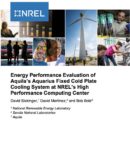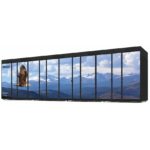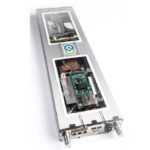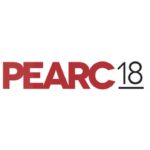What are the economic benefits of HPC? A new study by the University of Colorado Boulder’s Leeds School of Business indicates that the economic impact of NREL amounted to more than $1.1 billion nationwide, while the impact on Colorado’s economy came in at nearly $748 million. “The lab’s highly skilled workforce, innovative facilities, and business partnerships are key to the region’s economic vitality.”
Job of the Week: Computer Engineer at NETL
The National Energy Technology Laboratory (NETL) is seeking a Computer Engineer in our Job of the Week. “NETL supports the DOE mission to advance the energy security of the United States. NETL implements a broad spectrum of energy and environmental research and development (R&D) programs that will return benefits for generations to come.”
NREL Chooses Qumulo’s File Storage for Eagle Supercomputer
Today Qumulo announced that the National Renewable Energy Laboratory (NREL) has selected Qumulo’s file storage solution for its Computational Science Center. “With the impact of climate change, it’s crucial for organizations such as NREL to adopt technologies that accelerate their research and outcomes. “With Qumulo’s incredibly scalable architecture and real-time file analytics, the NREL team can gain better insight into their data, and in turn focus more effectively on their mission to drive innovation in energy efficiency and renewable energy technologies.”
NREL Report Looks at Aquila’s Cold Plate Cooling System for HPC
Liquid cooling has long been an enabling technology for high performance computing, but cost, complexity, and facility requirements continue to be concerns. Enter the Aquila Group, whose cold-plate technology looks to offer the advantages of liquid cooling with less risk. Based on a 10-month trial, a new paper gives an overview of the Aquarius fixed cold plate cooling technology and provides results from early energy performance evaluation testing.
Radio Free HPC Looks at NREL’s new Eagle Supercomputer
In this podcast, the Radio Free HPC team looks at the new Eagle supercomputing under construction at NREL. “The new machine from HPE will run more detailed models that simulate complex processes, systems, and phenomena to advance early research and development on energy technologies across fields including vehicle, wind power, and data sciences.”
Video: NREL Evaluates Aquarius Liquid Cooling Technology for HPC
Today Aquila announced delivery and installation of the first ever fixed cold plate liquid cooled Aquarius HPC system. Sandia National Laboratories has deployed the system at the NREL in order to fully study the benefits of Aquila’s fixed cold plate warm water cooling technology. “We feel their leadership will help shape the future of HPC and influence the modern data center designer towards adoption of liquid cooling. Our shared vision holds the promise of improving data center energy efficiency by as much as 50%.”
Anita Nikolich to Keynote PEARC18 in Pittsburgh
The PEARC18 Conference has added Anita Nikolich from IIT to its lineup of Keynote Speakers. Her talk on Hacking Academia will certainly resonate with the conference, which takes place July 22-27 in Pittsburgh.
NREL Report Evaluates LiquidCool Solutions for the Datacenter
NREL researchers are testing immersive liquid cooling technologies that could potentially bring huge energy savings to HPC datacenters. With worldwide datacenters consuming an estimated 70 billion kWh per year, a disruptive energy-saving solution is needed, and a liquid-submerged server (LSS) technology from LiquidCool Solutions might be the answer. “The testing confirmed that the LSS technology could not only maintain target temperatures under heavy computational load, but that the hot liquid could be used to heat buildings more efficiently than NREL’s current solution.”
LiquidCool Solutions Technical Evaluation
LiquidCool Solutions has developed a liquid submerged server (LSS) technology that changes the way computer electronics are cooled. The technology provides an option to cool electronics by the direct contact flow of dielectric fluid (coolant) into a sealed enclosure housing all the electronics of a single server. The intimate dielectric fluid contact with electronics improves the effectiveness of heat removal from the electronics.
PEARC18 Conference Announces lineup of Keynote Speakers
The PEARC18 Conference has announced its lineup of Keynote Speakers. The event takes place July 22-27 in Pittsburgh. “PEARC18 is for everyone who works to realize the promise of advanced computing as the enabler of seamless creativity. Scientists and engineers, scholars and planners, artists and makers, students and teachers all depend on the efficiency, security, reliability and sustainability of increasingly complex and powerful digital infrastructure systems. If your work addresses these challenges in any way, PEARC18 is the forum to share, learn and inspire progress.”











